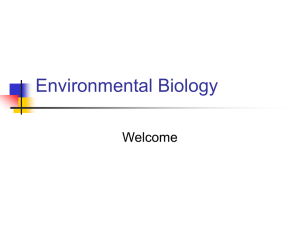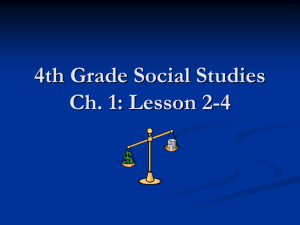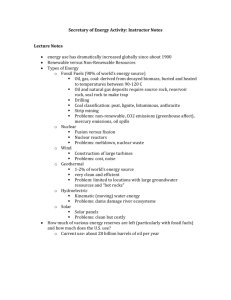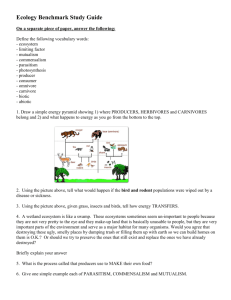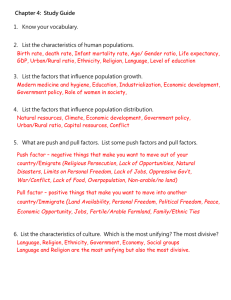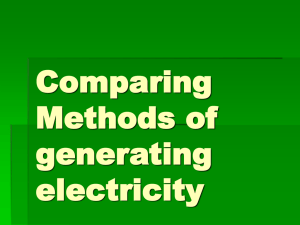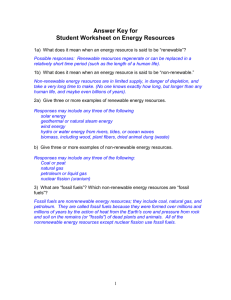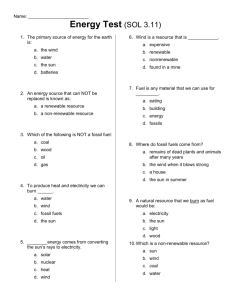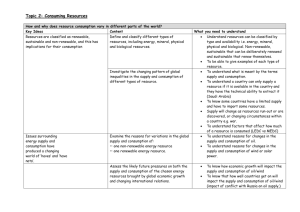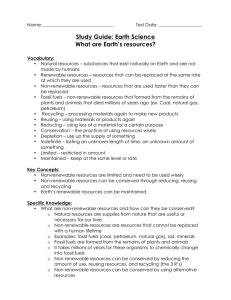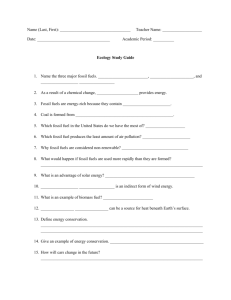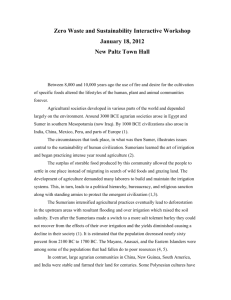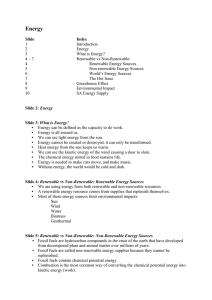Lesson 3 – Natural resources_2014
advertisement
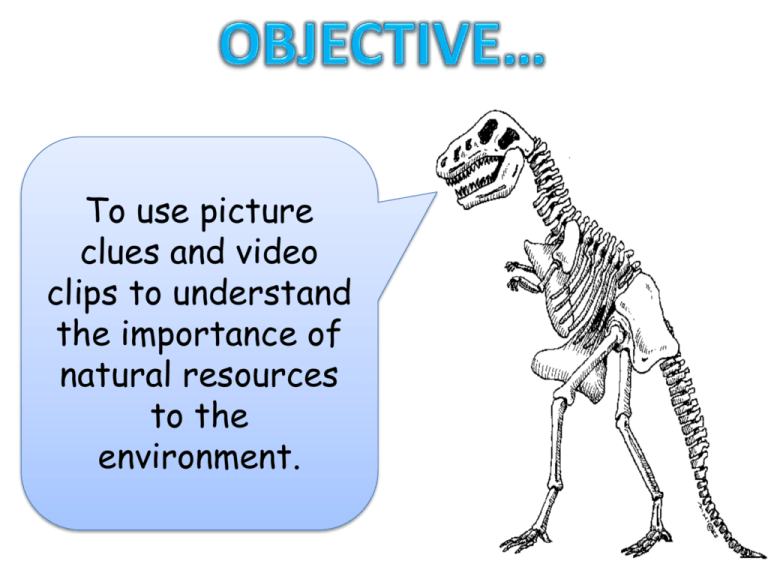
To use picture clues and video clips to understand the importance of natural resources to the environment. Grade C All will be able to describe what is meant by ‘renewable’ and ‘nonrenewable’ (natural) resources and give examples of each. Grade B Most will be able to explain what is meant by energy conservation and how human beings can help with this. Grade A/A* Some will be able to assess what the implications would be if the world ran out of natural resources (fossil fuels). Copy the following table into your books… RENEWABLE NON-RENEWABLE Now make a list of everything you are wearing and place it into the necessary column (include things like jewellery, makeup, hair products etc…) On your mini whiteboards… What is a renewable resource? Resources which replace themselves or can be replaced by humans. What is a non-renewable resource? Resources that cannot be replaced once they are taken from the environment; once we have used them up they are gone forever. Copy these definitions into your book – leave 5 lines between each to add some examples. Look at the following pictures and decide whether it is renewable or non-renewable. Add each example to the correct definition in your books. Grade C All will be able to describe what is meant by ‘renewable’ and ‘non-renewable’ (natural) resources and give examples of each. How are non-renewable resources (fossil fuels) used? Make a list in the back of your books of all the used you can think of... Swap ideas with the person next to you... Now let’s feedback your ideas.... What is energy conservation? What can we as humans do to help conserve energy? Grade B Most will be able to explain what is meant by energy conservation and how human beings can help with this. By now you get the idea that humans are reliant on non-renewable resources (fossil fuels). Whether it happens in a few years or a few hundred years, if humans continue to use these resources as they are at the moment that will eventually run out. Current estimates suggest: Oil: 46 years (depleted in 2055) Natural gas: 63 years (depleted in 2072) Coal: 119 years (depleted in 2128) What would happen if fossil fuels ran out tomorrow? Think about what you have learnt today and write a response to this. Think about the impact it would have on peoples lives and how they may have to adapt Explain how the scarcity of natural resources threatens the planet. (c, 8 marks) Structure is important! The traffic light system should help... RED POINT – Reason One EXPLANATION/EXAMPLE – This is a problem because… 2 marks AMBER POINT – Reason Two EXPLANATION/EXAMPLE – This is a problem because… 4 marks POINT – Reason Three EXPLANATION/EXAMPLE- This is a problem because… 6 Marks (must be written in good English) GREEN POINT – Reason Four EXPANATION/EXAMPLE – This is a problem because… 7-8 marks (must include key words/quotes) Swap with a partner and mark each others work in GREEN PEN The type of question is (c) and the marks for the question are (8). REMEMBER to mark each P and E in the margin – there should be two of each. Please comment – giving a POSITIVE and a TARGET Grade A/A* Some will be able to assess what the implications would be if the world ran out of natural resources (fossil fuels). Draw a pyramid in the back of your books and spit it into 3... Think of a question your would like answering. What have you been reminded of today? What have you learnt today?
